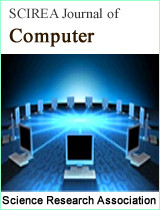Knowledge Reasoning Based on the Generalized Syllogism AHH-2
DOI: 10.54647/computer520396 46 Downloads 218368 Views
Author(s)
Abstract
This paper uses set theory to provide knowledge representation methods for common generalized syllogisms in natural language. Then, the validity of the generalized syllogism AHH-2 with the non-trivial generalized quantifier at most half of the is proved by the truth definitions of categorical propositions, and then the other 25 valid generalized syllogisms are derived from this syllogism. The reason why these results are consistent is that deductive reasoning is used throughout the proof process. In fact, more valid generalized syllogisms can be inferred from the syllogism AHH-2 if this similar method is used to continue reasoning. The formal transformation of generalized syllogisms in this paper is in line with the demand for knowledge reasoning in the era of artificial intelligence.
Keywords
generalized syllogisms; validity; knowledge representation; knowledge reasoning
Cite this paper
Liheng Hao,
Knowledge Reasoning Based on the Generalized Syllogism AHH-2
, SCIREA Journal of Computer.
Volume 9, Issue 1, February 2024 | PP. 1-8.
10.54647/computer520396
References
| [ 1 ] | Y. Fan, Artificial Intelligence and ChatGPT, Tsinghua University Press, Beijing, 2023. |
| [ 2 ] | Z. X. Cai, and G. Y. Xu Guangyou. Artificial Intelligence and Its Applications (4th Edition) Beijing: Tsinghua University Press, 2010. |
| [ 3 ] | L. S. Moss, Syllogistic logics with verbs. Journal of Logic and Computation, Vol 20. No. 4, 2010, pp. 947-967. |
| [ 4 ] | J. Endrullis, and L. S. Moss, Syllogistic logic with ‘most’. In: V. de Paiva et al. (eds. ), Logic, Language, Information, and Computation, 2015, pp.124-139. |
| [ 5 ] | E. L. Keenan, and D. Westerståhl, Generalized quantifiers in linguistics and logic. In: J. van Benthem and A. ter Meulen (eds.), Handbook of Logic and Language, Vol. 2, 2011, pp.859-910. |
| [ 6 ] | J. ?ukasiewicz, Aristotle’s Syllogistic: From the Standpoint of Modern Formal Logic (2nd edition), Clerndon Press, Oxford, 1957. |
| [ 7 ] | D. Westerståhl, Quantifiers in formal and natural languages. In: D. M. Gabbay and F. Guenthner (eds.), Handbook of Philosophical Logic, Vol.14, 2007, pp.227-242. |
| [ 8 ] | C. Zhang,The remaining 23 valid Aristotelian syllogisms can be deduced only from the syllogism IAI-3. SCIREA Journal of Computer, Vol 7. No. 5, 2022, pp.85-95. |
| [ 9 ] | A. G. Hamilton, Logic for Mathematicians, Cambridge University Press, Cambridge, 1978. |
| [ 10 ] | S. Peters, and D. Westerståhl, Quantifiers in Language and Logic, Claredon Press, Oxford, 2006. |

